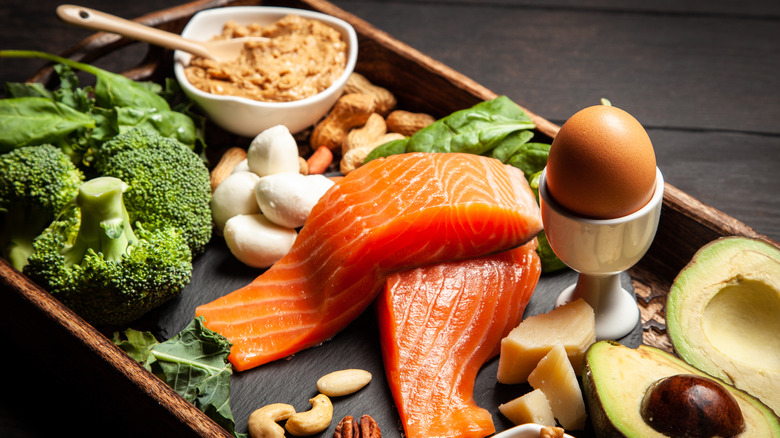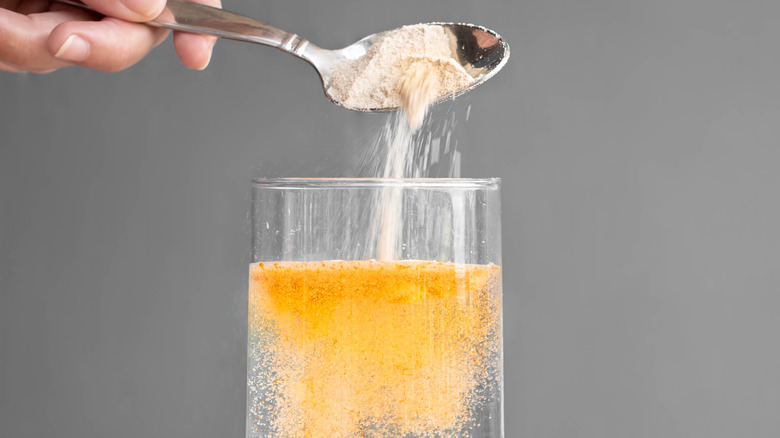Vitamins You Should Take If You Follow The Keto Diet
You likely have heard of the keto, pronounced kee-tow, diet, or you may have even tried it yourself. The diet is popular right now, and while it may have its merits, it can be challenging to adhere to. This is partly due to restrictions that can affect your overall nutrition (per Medical News Today).
The keto diet requires you to eat fats, protein, and very few carbohydrates. Sticking with this method will push the body to use fat instead of carbohydrates or sugar for energy. The goal is to put the body into ketosis, producing ketones for the body to use as fuel, eventually leading to losing weight. A British Journal of Nutrition study showed that those who followed keto lost more weight than those who tried a low-fat diet.
Weight loss has many benefits, besides wearing smaller pant sizes and looking good in the mirror. According to the Centers for Disease Control and Prevention, even losing 5% to 10% of your body weight can decrease the risk for chronic diseases and improve your cholesterol, blood pressure, and blood sugar. Unfortunately, with keto, there are some downsides to eating all fats and protein with little carbohydrates (via Medical News Today). Increased fat consumption can lead to high cholesterol levels (per the British Journal of Nutrition). On top of that, reduced carbohydrates can lead to low fiber levels, and a lack of nutrients reports Healthline. However, there are supplements you can take while on keto to combat these issues.
Supplements that can help when going keto
You're on the keto diet, and you've begun to see the benefits of the changes you've made to your diet, but you have some odd symptoms. These may be due to the lack of some nutrients you no longer eat adequate amounts of. Fiber is a major supplement you should add to your diet after going keto (per Medical News Today). Fiber is found in fruits and grains, but they have carbohydrates, so they are technically off the menu. However, fiber aids digestion, lowers cholesterol, and reduces inflammation and blood pressure (via Mayo Clinic).
While on the keto diet, you will also likely require more electrolytes as the body excretes more water than usual (via Medical News Today). According to the Cleveland Clinic, you get electrolytes from what you consume, and they have a positive or negative charge when dissolved in water. Electrolytes help the body maintain the fluid balance in and outside the cells and regulate chemical reactions.
Electrolytes depend on elements, such as sodium, potassium, magnesium, and calcium, among others that are normally obtained through the diet. Many fruits, green vegetables, cereals, and dairy products, such as milk or yogurt, are high in electrolytes (per Medical News Today). These foods aren't keto-friendly, though, as they contain sugar, which counts as carbs (per Healthline). When choosing your electrolyte replacement, if you select a drink, use one with zero sugar to address the problem without sabotaging your diet.


